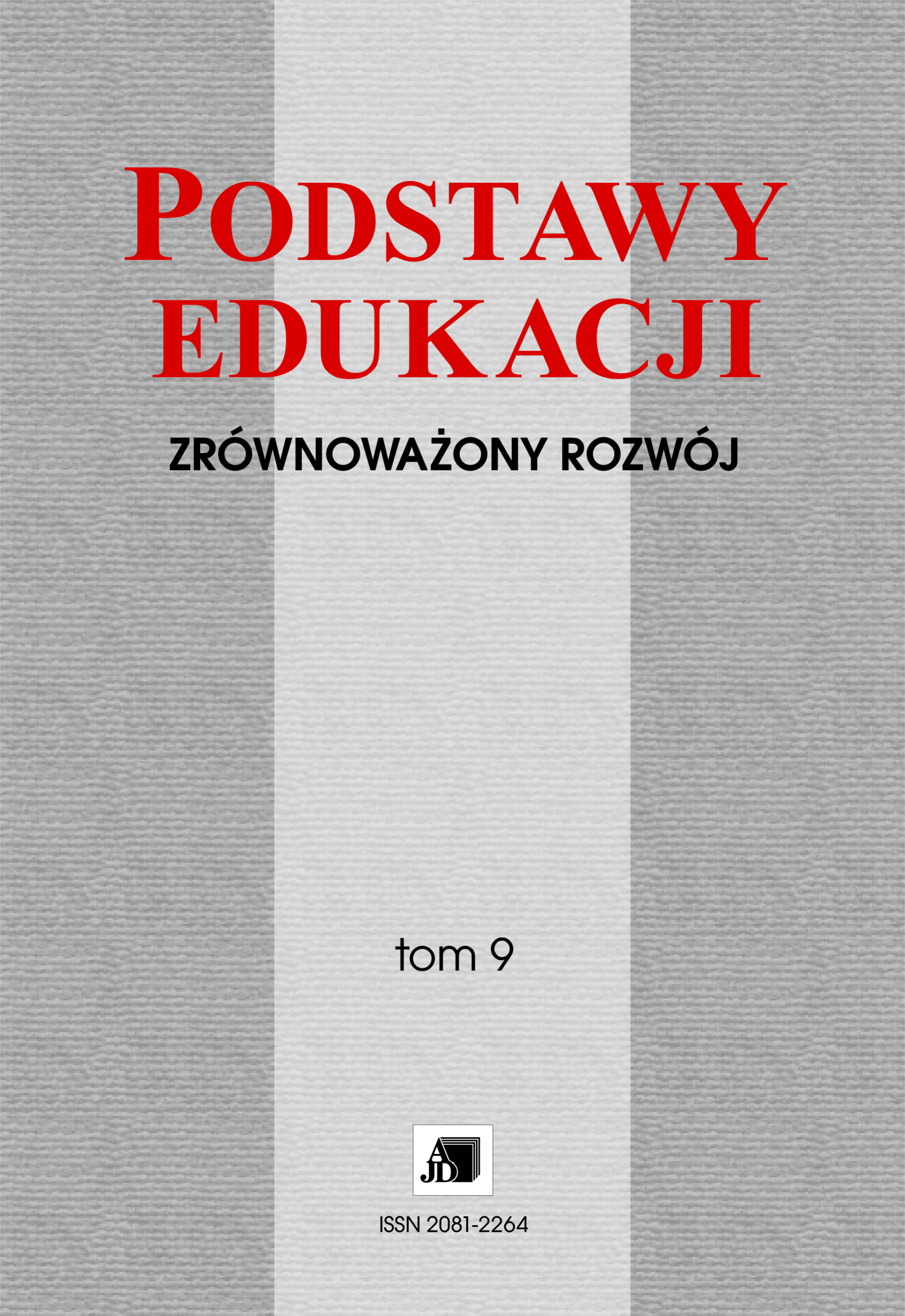Abstract
Human life has become much more complicated since living in the twenty-first century. At times, it is impossible to cope on one’s own. Therefore, various assistance and intervention efforts are gaining importance in this difficult post-modern reality. One of them is lifelong vocational guidance. The new model of human life however, has sparked the need to develop new models in guidance, too. A number of researchers from various fields of science took this certainly difficult challenge. The first modern theories of vocational guidance of M. Savickas and J. Guichard appeared at the beginning of the twenty-first century and are based on the “Life Design” model. Nevertheless, there are doubts whether they can be applied to school youth.
References
Arnsperger, Ch. (2016). Wykład plenarny pt. Podejmowanie zrównoważonych wyborów życiowych i zawodowych: spojrzenie z perspektywy ekonomiki egzystencjalnej wygłoszony na Międzynarodowej Konferencji Naukowej zorganizowanej przez Katedrę UNESCO Uniwersytetu Wrocławskiego w dniach 6–8 czerwca 2016.
Bańka, A. (2005). Zawodoznawstwo, doradztwo zawodowe, pośrednictwo pracy: psychologiczne metody i strategie pomocy bezrobotnym. Poznań: Wydawnictwo Print-B.
Bańka, A. (2007). Psychologiczne doradztwo karier, Poznań: Wydawnictwo Print-B.
Drabik-Podgórna, V. (2016). Współczesne poradnictwo – antropocentryczne myślenie wrażliwe na dialog. W: J. Guichard, V. Drabik-Podgórna, M. Podgórny (red.), Counselling and dialogue for sustainable human development. Toruń: Wydawnictwo Adam Marszałek.
Di Fabio, A. (2014). Poradnictwo kariery i psychologia pozytywna XXI wieku. Nowe konstrukty i sposoby oceny skuteczności działań doradczych. Studia Poradoznawcze, 3.
Duarte, M. (2015). Od doradztwa zawodowego do poradnictwa kariery. Life Designing czy Life Coaching, Referat wygłoszony na Międzynarodowej Konferencji Naukowej zorganizowanej przez Katedrę UNESCO Uniwersytetu Wrocławskiego w dniach 19–20 maja 2015.
Guichard, J. (2016). Career guidance, education, and dialogu es for a fair and sustainable human development, W: J. Guichard, V. Drabik-Podgórna, M. Podgórny (red.), Counselling and dialogue for sustainable human development. Toruń: Wydawnictwo Adam Marszałek.
Kargulowa, A. (2010). Zmiany w polskim poradnictwie [Changes In counselling In Poland]. Edukacja Dorosłych, 1.
Luken, T. (2013). Przygotowanie do konstruowania kariery – czy rzeczywiście zmierzamy w dobrym kierunku? Studia Poradoznawcze, 2.
Manterys, A., Mucha, J. (2009). Nowe perspektywy teorii socjologicznej. Punkt widzenia 2009. W: A. Manterys, J. Mucha (red.), Nowe perspektywy teorii socjologicznej [New perspectives of sociologigical theory: The 2009 point of view], Kraków: Zakład Wydawniczy NOMOS.
Paszkowska-Rogacz, A. (2015). Orientacja temporalna młodzieży a jej dojrzałość do planowania kariery. Studia Poradoznawcze, 4.
Patton, W., McMahon, M. (2006). Career Development and Systems Theory: Connecting Theory and Practice, Rotterdam – Boston – Taipei: Sense Publishers.
Savickas, M.L. (2011). Carrer counseling. Washington: American Psychological Association.
Savickas, M.L. (2013). Career Construction Theory and Practice. W: R.W. Lent, S.D. Brown (red.), Career development and counseling: Putting theory and research to work. Hoboken, NJ: Wiley.
Spętana, J. (2015). Maria Eduarda Duarte, Poradnictwo i Life designing: Jak pomagać w konstruowaniu kariery? O poszukiwaniu wiedzy i sensu życia w poradnictwie kariery. Katedra UNESCO, Instytut Pedagogiki Uniwersytetu Wrocławskiego, Wrocław, 19–20 maja 2015 r. Studia Poradoznawcze, 4.
Sullivan, S.E. Arthur, M.B. (2006). The Evolution of Boundaryless Career Concept: Examining Physical and Psychological Mobility. Journal of Vocational Behavior.
I am aware that the journal is published under the Creative Commons Attribution License (https://creativecommons.org/licenses/by/4.0/legalcode).
By submitting an article, I agree to make it available under this license.
